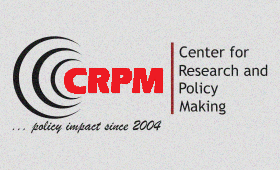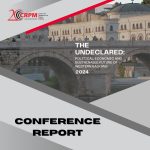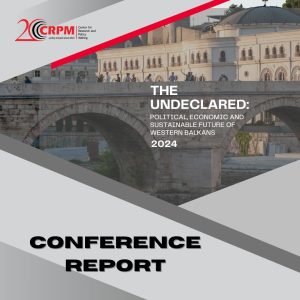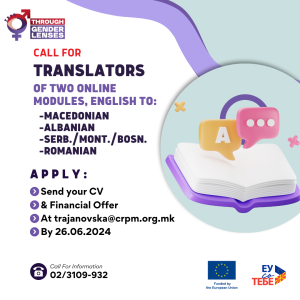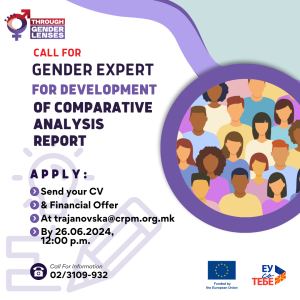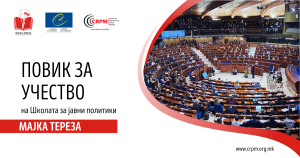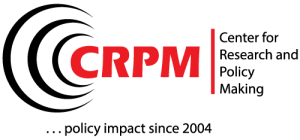“EU ENLARGEMENT – CHALLENGES, BENEFITS, OPPORTUNITIES FOR MACEDONIA”
About:
The Center for Research and Policy Making (CRPM) from Skopje, in partnership with the Centre for European Studies and the Konrad Adenauer Stiftung office in Skopje will publish series of timely, well-targeted policy briefs addressing key challenges and opportunities of the future of Macedonia’s EU accession. For that purpose we are announcing the following:
CALL FOR PAPERS
On the following topics:
1. Trade, investment and single market in goods and services
• The impact of trade on both EU27 and accession countries – e.g. impact on employment levels (“local jobs”) and GDP for EU exporters/importers and Macedonia
• Short-term vs medium-term impact on GDP and other indicators in EU and accession countries, e.g. “tax burden”
• Harmonization of product standards and product safety
• Terms of trade – non-tariff vs tariff barriers, equal access to markets vs protectionism (“fear of cheaper imports”), including common agricultural policy
• Overall impact of widening EU market (‘soft power’ of EU standards in food safety, product labeling, etc.)
2. Mobility: tourism, travel, migration
• Impact on tourism revenue for both EU27 countries and Macedonia
• Student exchanges – raising educational standards and mutual understanding (economic impact, raising professional standards in public and private sectors)
• Visa-free relations, impact of the new EU visa policy on Macedonia, ease of cross-border travel (“fear of organized crime”)
• Prospects for internal affairs reform in Macedonia in those sectors which have international links, e.g. border management, combating corruption and organized crime.
• Trends in asylum-seeking/refugees after waves of EU enlargement and impact on public opinion of labor migration and asylum-seekers
• Minority rights in EU and Macedonia, and trends in anti-immigrant public opinion/political parties in EU
• Impact of remittances on economic development of Macedonia “taking money out of EU economies vs taking responsibility for economic development at home”)
3. Gender awareness
• Analysis of women’s rights, in particular access to education and health care and scope for EU advice in increasing girls’ equal participation
• Potential, e.g. through training, for greater women’s participation in professional life – both national and local government, private sector, senior management in Macedonia
• Awareness about understanding of different countries’ efforts/lack of efforts to improve equality of access and participation, and scope for, and limits of, EU ‘soft power’ influence
4. Good governance and democratic reform
• The EU role in promotion of good governance in Macedonia and measures of progress on “good governance”, in particular public administration reform, judicial reform, capacity of law enforcement etc.
• Implications for EU support and ‘soft power’ in democratization reforms in candidate/post-candidate countries
5. EU financial instruments towards candidate countries – past, present, future
• Study of impact of different EU mechanisms and agreements – ENPI, IPA, EIDHR, SAAs, EPA
• Lessons for review/refinement in terms of civil society support (“what is there to show for EU funding through taxpayers’ money?”)
• Lessons for review/refinement in terms of professionalizing public administration and strengthening good governance
• Scope for country-driven reform agendas and tailor-made support programs.
All policy briefs will be subjected to internal and external peer review as part of the CRPM commitment to quality standards in policy work.
Application process
Applicants should submit a completed application form to
eupolicybriefs@gmail.com by April 1, 2012. The successful applicants will be notified in mid April, 2012.
The application consists of 250-300 word abstract, and a short narrative biography [max 300 words], and a request for travel/accommodation support.

